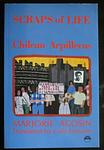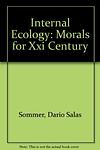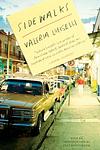The Greatest Mexican, Chilean "Nonfiction" Books Since 1980
Click to learn how this list is calculated.
This list represents a comprehensive and trusted collection of the greatest books. Developed through a specialized algorithm, it brings together 300 'best of' book lists to form a definitive guide to the world's most acclaimed books. For those interested in how these books are chosen, additional details can be found on the rankings page.
Genres
Countries
Date Range
Reading Statistics
Click the button below to see how many of these books you've read!
Download
If you're interested in downloading this list as a CSV file for use in a spreadsheet application, you can easily do so by clicking the button below. Please note that to ensure a manageable file size and faster download, the CSV will include details for only the first 500 books.
Download-
1. Scraps Of Life by Marjorie Agosín
"Scraps of Life" is a poignant collection of testimonies and reflections on the harrowing experiences of Chilean women who endured the brutality of the Pinochet dictatorship. Through a tapestry of personal narratives, poems, and letters, the book gives voice to the pain, resilience, and unyielding hope of these women as they navigate the aftermath of political repression and personal loss. The work serves as a powerful testament to the strength of the human spirit and the enduring quest for justice and memory in the face of unspeakable atrocities.
-
2. Paula by Isabel Allende
The book is a deeply personal memoir in which the author recounts the tragic experience of her daughter falling into a coma due to a rare illness. As her daughter lies in the hospital, the author begins to write a poignant letter that evolves into a narrative of her family's history, her own life story, and the political and cultural upheavals that shaped her world. Through this intimate narrative, she explores themes of love, loss, and resilience, offering a raw and heartfelt reflection on the events that have defined her life and the unbreakable bonds of family.
-
3. Internal Ecology Morals For Xxi Century by Dario Salas Sommer
This book delves into the intricate relationship between individual moral development and the broader ecological balance of our planet, proposing that the environmental crises of the 21st century are deeply intertwined with the moral and ethical decay observed in contemporary society. The author argues that by fostering a deeper understanding of our internal ecology—our thoughts, emotions, and spiritual well-being—we can cultivate a more harmonious relationship with the external world. Through a blend of philosophical insight and practical guidance, the text invites readers to embark on a journey of personal transformation as a foundational step towards addressing the global environmental challenges of our time, emphasizing the critical role of individual responsibility and ethical conduct in shaping a sustainable future.
-
4. Mexico: Biography of Power by Enrique Krauze
This book offers a comprehensive exploration of the political and social evolution of Mexico, tracing the country's history from the pre-Columbian era to the late 20th century. It delves into the lives and legacies of Mexico's influential leaders, examining how their exercise of power shaped the nation's identity and destiny. The narrative weaves through the complexities of Mexico's revolutions, reforms, and relationships with external powers, providing a deep understanding of the forces that have defined the country's path and the characters who have stood at the helm of its journey. Through a blend of biography and historical analysis, the work presents a vivid portrait of a nation's struggle for sovereignty, stability, and self-definition.
-
5. Tell Me How It Ends: An Essay in 40 Questions by Valeria Luiselli
This book is a powerful exploration of the critical issue of child immigration, focusing on the experiences of Central American children who arrive in the United States without their parents. The narrative is structured around 40 questions that the author, as a court interpreter, must ask the children to help determine their fate. The book provides a deeply personal and moving account of the human stories behind the ongoing debate over immigration and asylum laws.
-
6. Sidewalks by Valeria Luiselli
"Sidewalks" is a collection of essays that delve into the themes of urban spaces, memory, and identity through the lens of the author's experiences in different cities around the world. The narrative weaves together personal reflections, literary criticism, and philosophical musings, offering a unique perspective on the ways in which the physical landscapes of cities intersect with the internal landscapes of our minds. Through her explorations of sidewalks, cemeteries, and other urban spaces, the author invites readers to consider the profound connections between place, history, and the self, making this work a thoughtful meditation on the nature of belonging and the transient essence of life.
Reading Statistics
Click the button below to see how many of these books you've read!
Download
If you're interested in downloading this list as a CSV file for use in a spreadsheet application, you can easily do so by clicking the button below. Please note that to ensure a manageable file size and faster download, the CSV will include details for only the first 500 books.
Download




